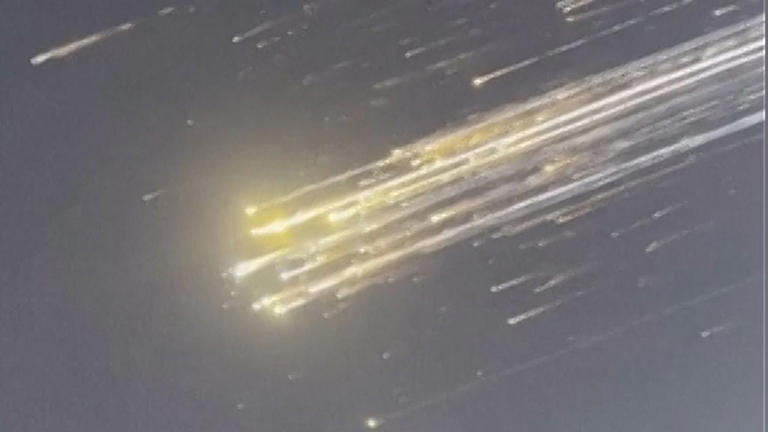SpaceX suspects that a fire caused its Starship rocket to break apart during liftoff, scattering flaming debris near the Caribbean.
Elon Musk, SpaceX’s founder, stated that initial findings suggest leaking fuel built up pressure above the engine firewall, leading to a fire that likely doomed the spacecraft.
The company announced on Friday that it would conduct a “thorough investigation” in collaboration with the Federal Aviation Administration (FAA).
The 400-foot Starship, the largest and most powerful rocket ever built, launched from South Texas on a test flight Thursday evening. While the booster successfully returned to the pad for capture by mechanical arms—a feat accomplished only once before—the spacecraft’s engines began shutting down during ascent. Communication was lost 8 ½ minutes into the flight.
Dramatic footage from the Turks and Caicos Islands captured debris raining down as streams of fireballs lit up the sky. Flights in the area were rerouted as a precaution.
SpaceX confirmed that Starship remained within its designated launch corridor over the Gulf of Mexico and the Atlantic Ocean. Any surviving wreckage likely fell into the ocean along this path, according to the company’s website.
The test flight aimed for a controlled reentry over the Indian Ocean, with Starship carrying ten dummy satellites to simulate deploying SpaceX’s Starlink internet satellites.
This marked the seventh test flight for Starship, featuring a newly upgraded spacecraft. Preparations are already underway for the next demonstration, with the eighth iteration of Starship fully constructed and undergoing testing.
Musk described the accident on X as “barely a bump in the road,” reaffirming his long-term vision of building a fleet of Starships to transport people to Mars.
NASA has contracted SpaceX to use Starship for two Artemis program missions to land astronauts on the moon later this decade.
“Spaceflight is not easy. It’s anything but routine,” NASA Administrator Bill Nelson emphasized on X, stressing the importance of rigorous testing.
Earlier that same day, Jeff Bezos’ Blue Origin also experienced mixed outcomes during the debut of its New Glenn rocket. While it successfully reached orbit on its first attempt, deploying a test satellite thousands of miles above Earth, the booster failed to land on its floating platform in the Atlantic and was destroyed.



